A 6-volt battery of negligible internal resistance is connected across a uniform wire AB of length 100cm. The positive terminal of another battery of emf 4V and internal resistance 1(Ω)is joined to the point A as shown in figure.Take the potential at B to be zero. (a) What are the potentials at the poits A and C ? (b) At which point D of the wire AB, the potential is equal to the potential at C?(c ) If the point C and D are connected by a wire, what will be the current through it ? (d) If the 4V battery is replaced by 7.5V battery,wht would be the answer of parts (a) and (b) ?
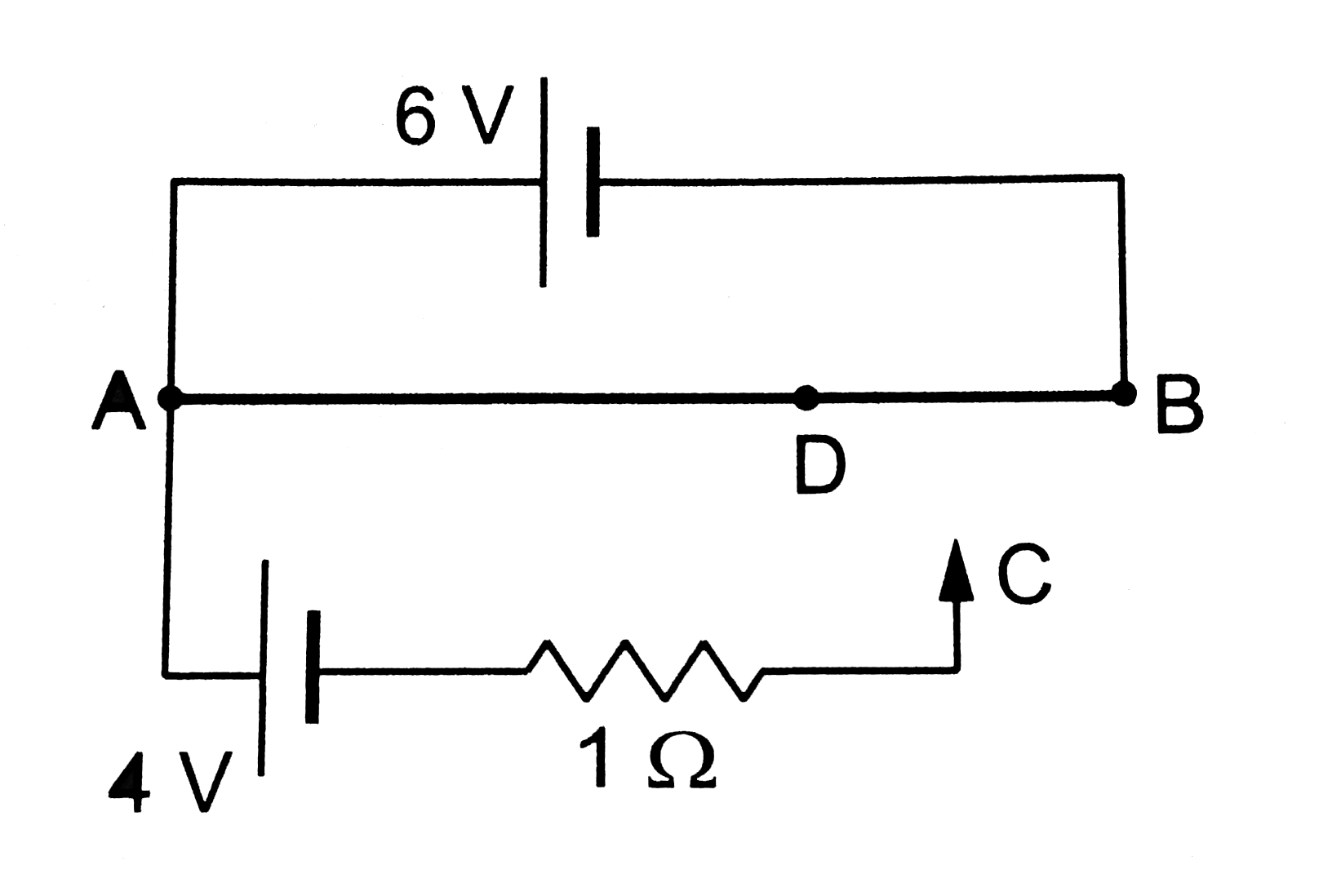
Potential difference between AB is 6V. B
is at 0 potential. Thus potential of a point
is 6V.
The potential difference between AC is 4V.
VA−VC=4
VC=VA−4=6−4=2V.
(b) The potential difference at D =2V=VAD=4V.
VBD=0V
Current through the resisters R_1 & R_2 are
equal. Thus ,
4R1=2R2
⇒R1R2=2
⇒l1l2=2
(Acc.to the law of potentiometer)
⇒l1+l2=100cm
⇒l1+(l12)=100cm
⇒3l12=100cm
⇒=l1=2003cm=66.67cm.
AD=66.67cm
(c)When the points C and D are connected
by a wire, current flowing through it is 0,
since the points are equipotential .
(d) Potential at A = 6V.
PotentialatC=6−7.5=−1.5V.
The potential at B= 0 and towards A
potential increases. Thus negative
potential point does not come within the
wire.
Topper's Solved these Questions
- ELECTRIC CURRENT IN CONDUCTORSBook:HC VERMA ENGLISHChapter:ELECTRIC CURRENT IN CONDUCTORSExercise:questions for short answer
Explore 17 Videos
- ELECTRIC CURRENT IN CONDUCTORSBook:HC VERMA ENGLISHChapter:ELECTRIC CURRENT IN CONDUCTORSExercise:objective 2
Explore 9 Videos
- DISPERSION AND SPECTRABook:HC VERMA ENGLISHChapter:DISPERSION AND SPECTRAExercise:Question for short Answer
Explore 6 Videos
- ELECTRIC CURRENT THROUGH GASESBook:HC VERMA ENGLISHChapter:ELECTRIC CURRENT THROUGH GASESExercise:Short answer
Explore 6 Videos
Similar Questions
A 6 volt battery of negligible internal resistance is connected across a uniform wire AB of length 100cm. The positive terminal of another battery of emf 4V and internal resistance 1Ω is joind to the point A as shown in figure. Take the potential at B to be zero. (a) What are the potentials at the points A and C ? (b) At which D of the wire AB, the potential is equal to the potential at C. ( c) If the point C and D are connected by a wire. What will be the current through is ? (d) Id the 4V batteryt is replaced by 7.5 V battery, what whould be the answers of parts (a) and (b) ?
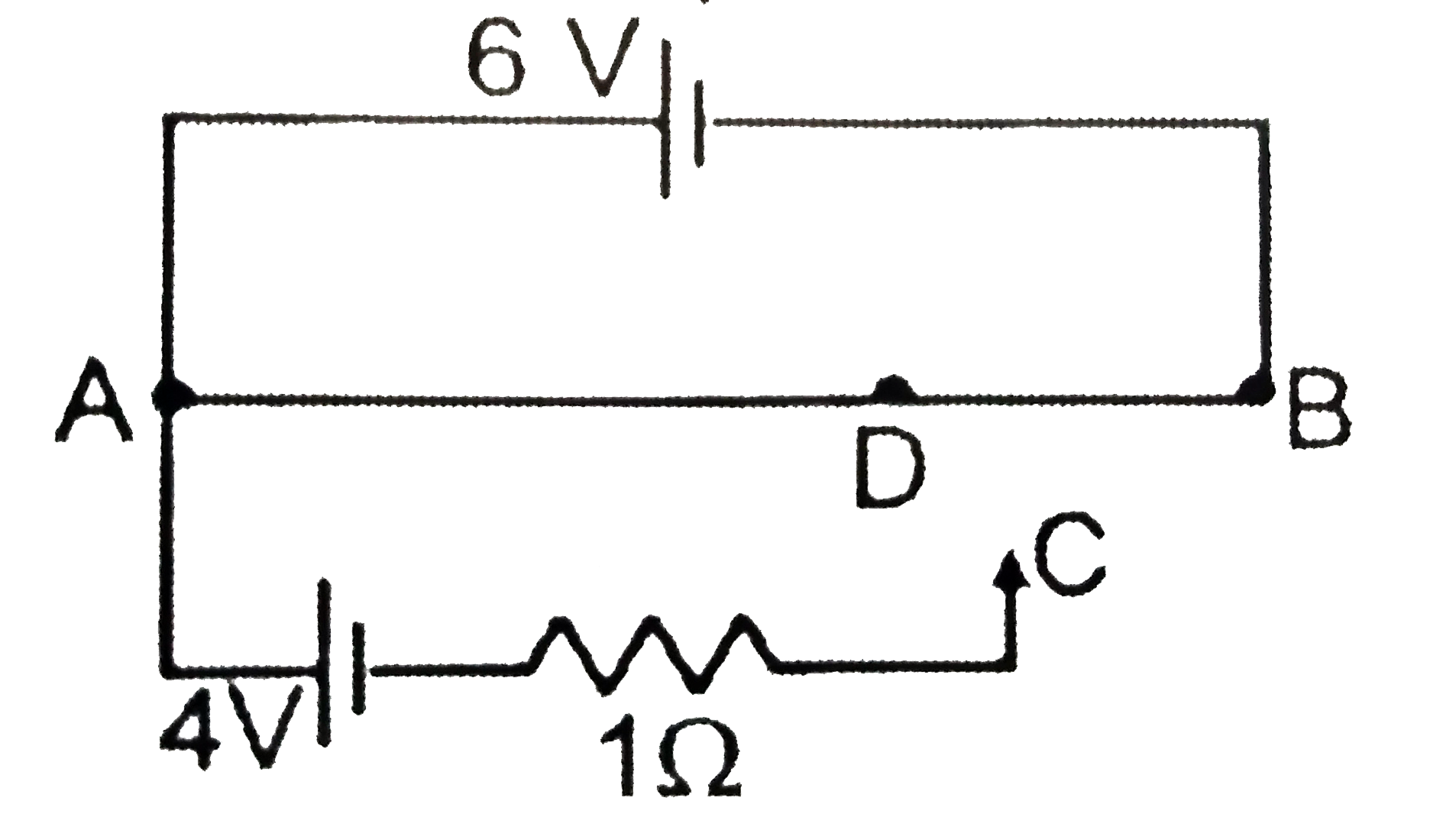
View SolutionA 6V battery of internal resistance 1Ω is connected across a uniform wire AB of length 100 cm. The positive terminal of another battery of E.M.F 4V and internal resistance 1Ω is joined to the point A as shown. The distance of point P from A is α×10cm. Find the value of α, for which there is no current through the galvanometer. (resistance of AB wire is 5Ω)
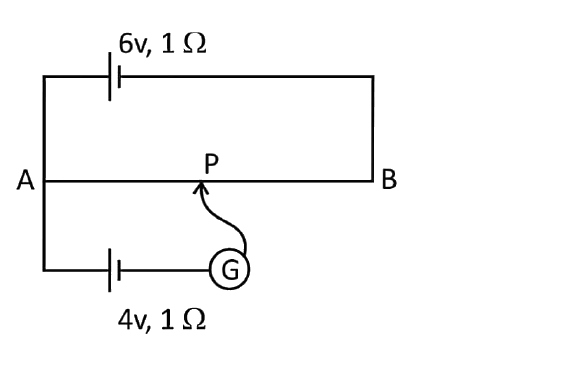
View SolutionA battery of emf 2 V and initial resistance 1Ω is
connected across terminals A and B of the circuit shown
in figure
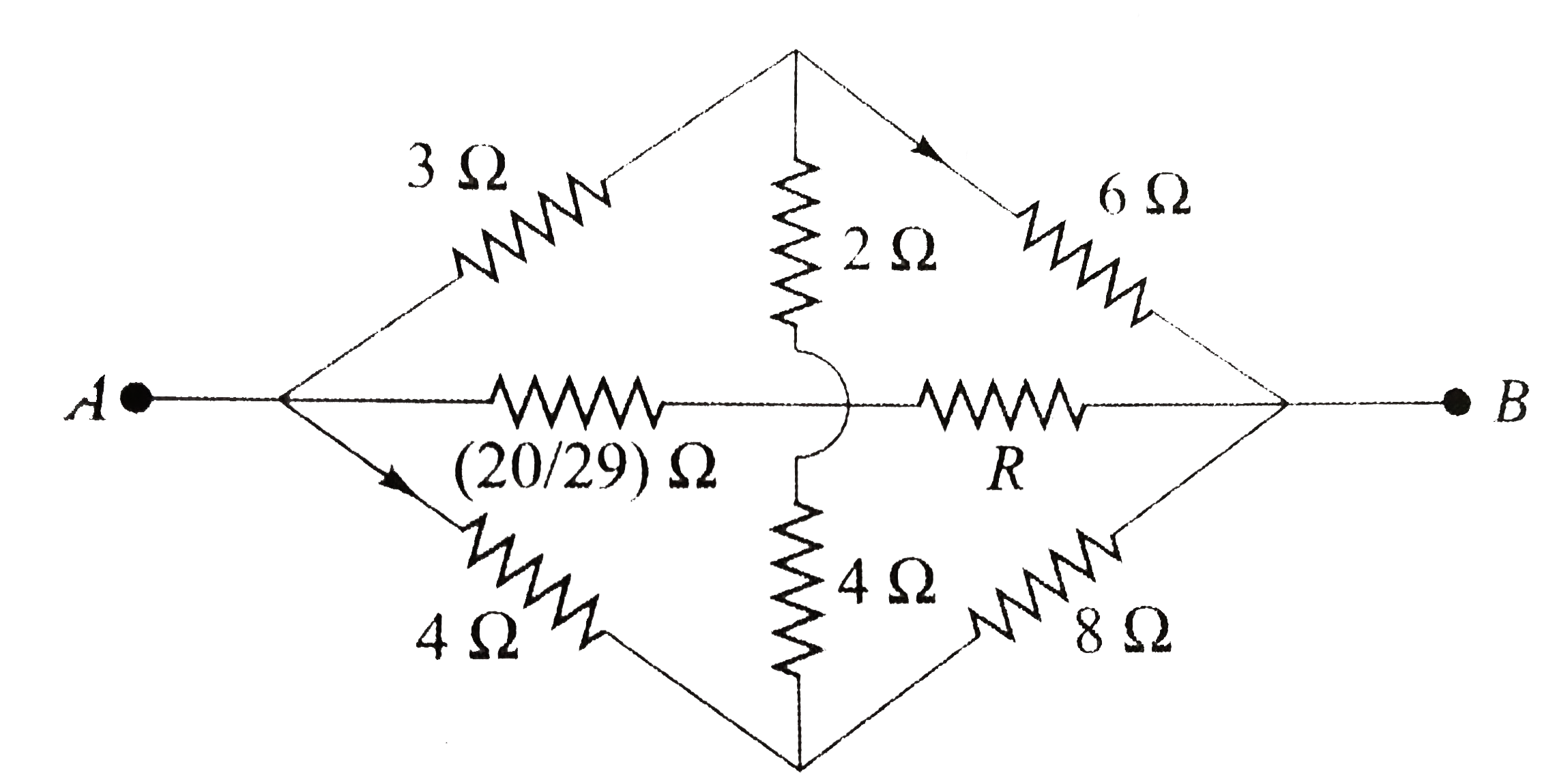 .
.
View SolutionA 5 V battery of negligible internal resistance is connected across a 200 V battery and a resistance of 39Ω as shown in the figure. Find the value of the current.

View SolutionA battery of emf 2V and internal resistance 0.5(Ω)is connected across a resistance 1.5(Ω). Find the current flow through battery ?
View SolutionA 10 V battery of negilgible internal resistance is connected across a 200V battery and a resistance of 38Ω as shown in figure.
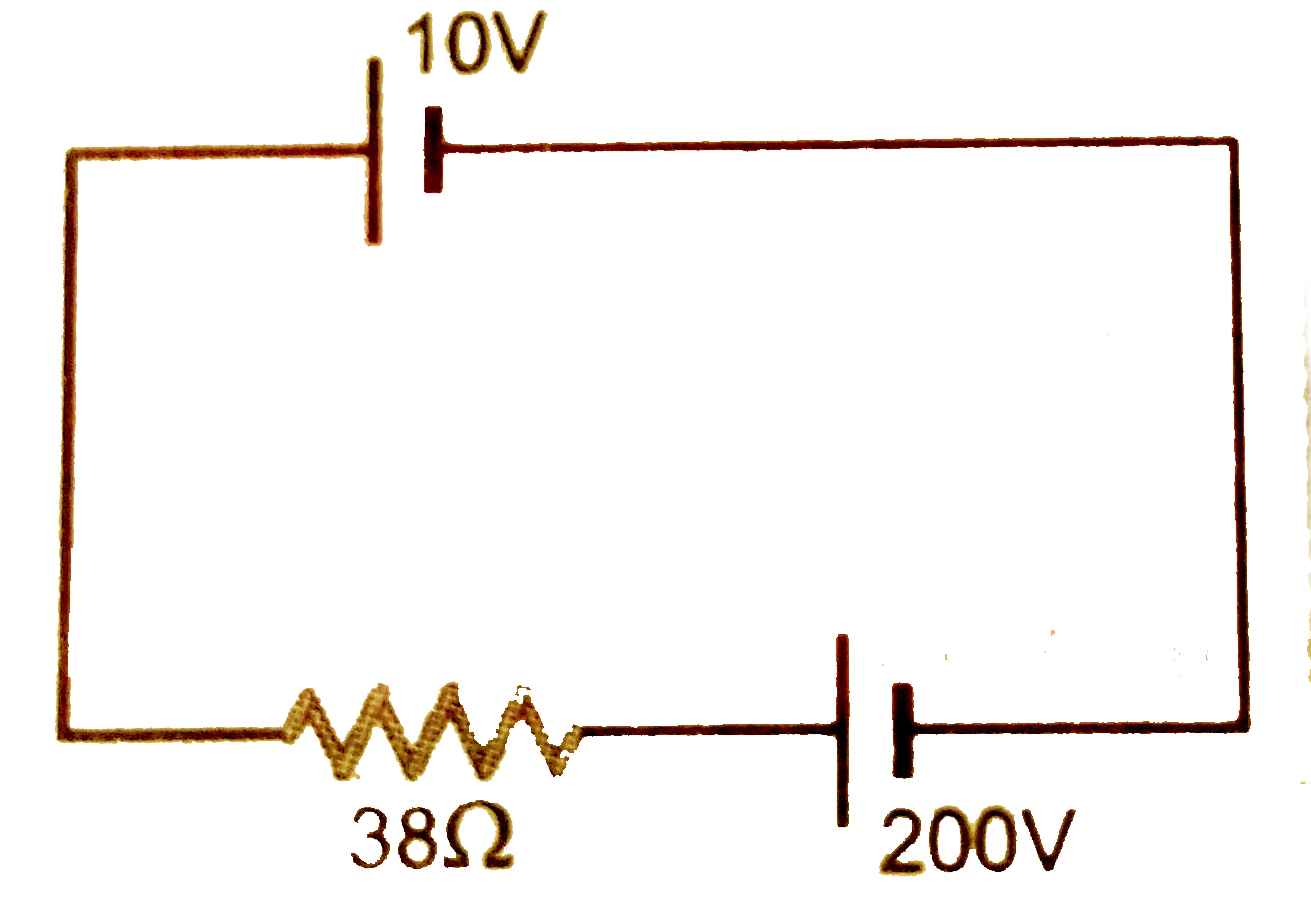 . Find the value of current in the circuit.
. Find the value of current in the circuit.
View SolutionThe resistance and batteries are connected as shown in. The potentials at points B,C,D, and E are assigned as shown. Find the potential at point A.

View SolutionA battery of emf 2.0V and internal resistance 0.10Ω is being charged with a current of 5.0A. Find the potential difference between the terminals of the battery?
View SolutionA battery of emf ε0=5V and internal resistance 5Ω is connected across a long uniform wire AB of length 1m and resistance per unit length 5Ωm−1. Two cells of ε1=1Vandε2=2V are connected as shown in the figure.
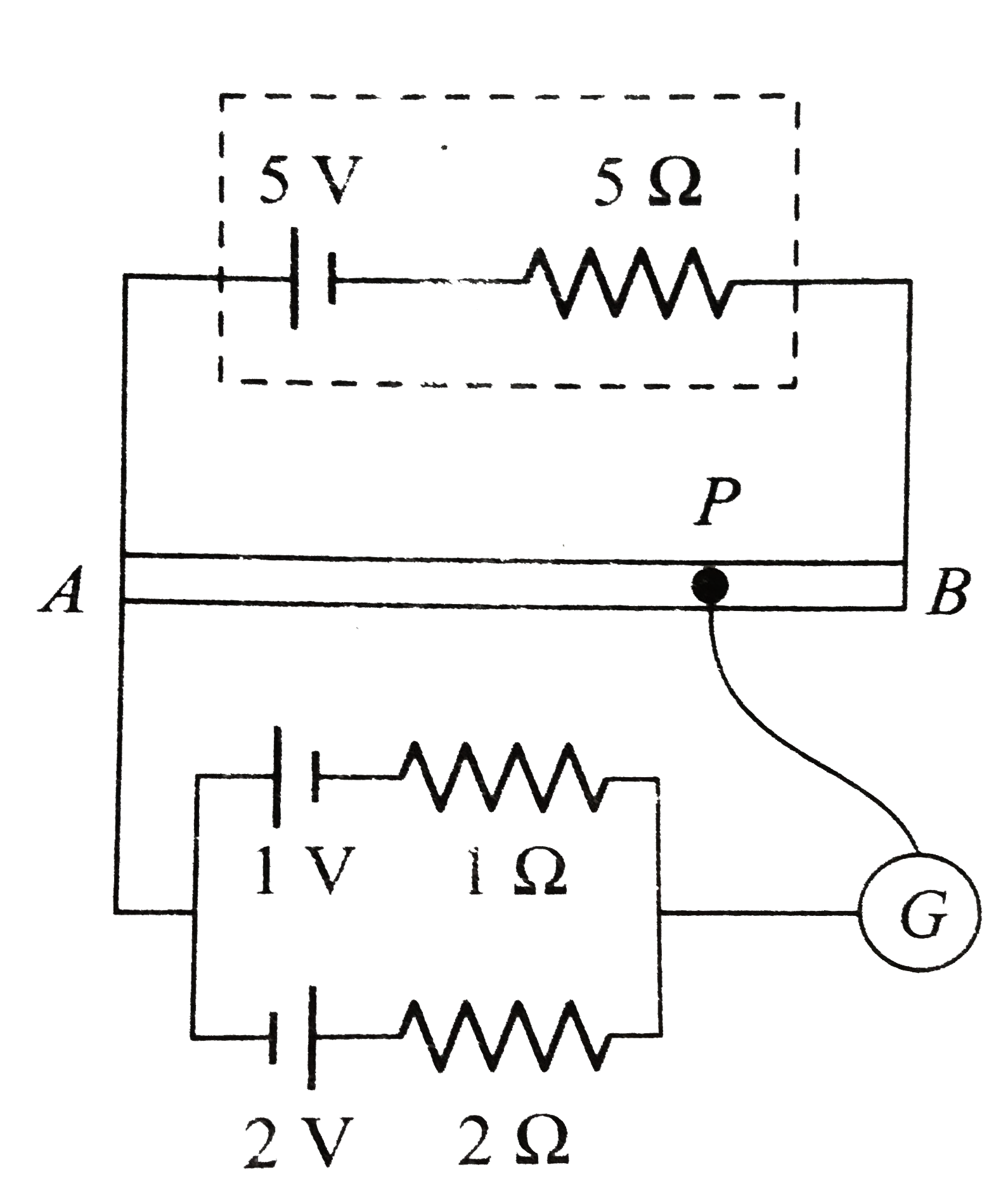
View SolutionThe potential difference between the terminals of a battery of emf 6.0V and internal resistance1(Ω)drops to 5.8 V when connected across an external resistor. Find the resistance of the external resistor.
View Solution
